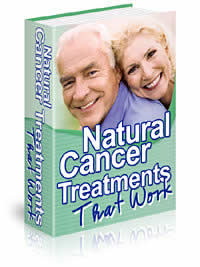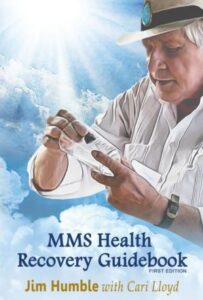WHO Approves AstraZeneca Vaccine for Emergency Use, But Some Nations Say ‘No Thanks’
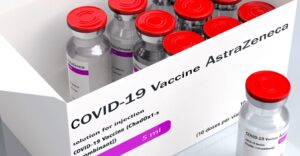 The World Health Organization (WHO) Monday approved two versions of the AstraZeneca-Oxford COVID vaccine for emergency use despite growing safety concerns in other countries and earlier questions about the drugmaker’s clinical trials.
The World Health Organization (WHO) Monday approved two versions of the AstraZeneca-Oxford COVID vaccine for emergency use despite growing safety concerns in other countries and earlier questions about the drugmaker’s clinical trials.
Countries like the U.S., UK, Israel, Saudi Arabia and others have their own regulatory process for granting emergency use approval for vaccines and other drugs, but those countries that lack the necessary regulatory framework rely on WHO to vet vaccines. Covid19 Mask Vaccine FEAR Psyop TV
WHO’s approval of the vaccines produced by AstraZeneca-SKBio (Republic of Korea) and the Serum Institute of India paves the way for 300 million doses of AstraZeneca to reach 145 countries in the first half of 2021, through Bill Gates’ COVAX program.
But while WHO is moving forward, other countries are hitting pause on AstraZeneca amid ongoing reports of side effects and lack of efficacy.
According to Fierce Pharma, the U.S. Food and Drug Administration (FDA) may not approve the AstraZeneca COVID vaccine due to inconsistent manufacturing concerns and a study released earlier this month showing the vaccine’s efficacy against mild and moderate COVID-19 cases was only 21.9%, well below the 50% threshold required for vaccine approval.
According to the Wall Street Journal, South Africa suspended plans to distribute the AstraZeneca COVID vaccine when the same study showed only 10% efficacy at protecting against mild and moderate COVID-19 cases from the new South African variant.
South Africa’s health minister, Zweli Mkhize, said, “the country would temporarily halt a planned rollout of the vaccine until there was more information on the vaccine’s efficacy” and instead distribute the as of yet unapproved Johnson & Johnson vaccine.
Although the European Medicines Agency authorized the AstraZeneca COVID vaccine for anyone over the age of 18, Germany did not authorize the vaccine for use in people 65 or over citing a “lack of efficacy.”
According to the BBC, France’s health regulator said there was still not enough data about the effectiveness of the vaccine in people over 65. Austria, Belgium, Poland and Switzerland also recommended the vaccine not be given to older people, citing insufficient evidence.
Reuters reported today that health authorities in some European countries are experiencing resistance to AstraZeneca’s COVID vaccine after hospital staff and front-line workers experienced adverse reactions. Although a spokesman for AstraZeneca said side effects are to be expected, France, Germany and Sweden are experiencing more side effects from the AstraZeneca COVID vaccine than from the Pfizer-BioNTech vaccine, according to Reuters.
Two regions in Sweden temporarily halted vaccinations last week after 400 people received the AstraZeneca COVID vaccine and 100 people experienced adverse reactions leaving them unable to work. Another region observed a surprising number of side effects after a mass vaccination effort of more than 500 people.
Covid19 Mask Vaccine FEAR Psyop TV
“There seems to have been a larger proportion of side effects than expected,” Andreas Heddini, medical director of AstraZeneca in the Nordic region told SVT News. “We have seen that somewhere around 10 percent of those vaccinated are expected to have side effects of this kind.”
Multiple adverse reactions were reported during the 2020 AstraZeneca trials, including spinal cord damage consistent with transverse myelitis, death and acute neuro encephalopathy. Although global trials were temporarily paused, the trial in India moved forward and Indian Health Secretary, Rajesh Bhushan, said during a press conference that the adverse event would “not affect the timeline in any manner whatsoever.”
The AstraZeneca vaccine is different from Pfizer and Moderna’s mRNA COVID vaccines. The AstraZeneca vaccine is based on the virus’ genetic instructions for building the spike protein — proteins on the SARS-CoV-2 virus that it uses to enter human cells. Whereas Pfizer-BioNTech and Moderna vaccines use single-stranded RNA to “store” these instructions, the AstraZeneca vaccine uses double-stranded DNA. Researchers then added the gene for the coronavirus spike protein to a modified version of a chimpanzee adenovirus that can enter cells.
The AstraZeneca vaccine is similar to the controversial ebola vaccine, a DNA and recombinant-based adenovirus vaccine, which, as The Defender reported in December, may put some populations at heightened risk of developing HIV.
Despite AstraZeneca’s confusing results and efficacy of only 63.09% compared to the 95% efficacy rating of Pfizer-BioNTech and Moderna vaccines, it is hailed because it is easier and cheaper to produce than other rivals that have already been approved by WHO. WHO is focused on scaling up production and distribution of the vaccine, explained Tedros Adhanom Ghebreyesus, WHO’s director-general.
The AstraZeneca vaccine will reach the masses through a program called “COVAX,” a mechanism for procurement and distribution of vaccines. COVAX was founded by Bill Gates and is co-led by the Global Alliance for Vaccines and Immunization (GAVI) set up in 1999 with seed money from the Bill & Melinda Gates Foundation. Since 1999, the foundation has committed more $4 billion to GAVI and has a permanent seat on the board.
Gates’ foundation also co-founded the Coalition for Epidemic Preparedness and Innovations (CEPI) launched in 2017 to develop vaccines to stop future epidemics and is a major donor to WHO second only to the U.S.
Gates funded the manufacturing and distribution of the AstraZeneca COVID vaccine through GAVI and CEPI, provided millions to the Serum Institute of India to manufacture the vaccine, and is funding the “safety and efficacy” studies of the AstraZeneca COVID vaccine in Brazil and South Africa. Although data from these studies have yet to be released, it forms the basis of Gates’ most recent warning that a “third dose of the vaccine,” boosters, or a “tuned vaccine” may be needed to combat coronavirus variants. According to GAVI, the Gates Foundation plays a key financial and technical role in shaping vaccine markets, while providing the data and financial support for market investments. The AstraZeneca vaccine forms the bulk of the stockpile already acquired by Gates’ COVAX.
WHO recommends the use of AstraZeneca’s vaccine even in countries that have expressed concerns about safety and efficacy, and for all age groups over 18, including the older populations. WHO experts claim the benefits outweigh the risks of this experimental and controversial vaccine.
Researchers Sound Alarm About Harmful Chemicals in Common Disinfectants
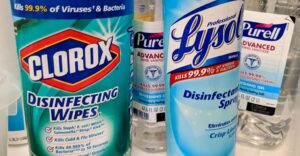 The pandemic triggered a surge in the use of disinfectants, many of which contain a family of compounds that researchers say could cause fertility issues, endocrine disruption, occupational asthma, marine toxicity and could also cause bacteria to become antibiotic-resistant. By Casey Crownhart Birth defects and infertility
The pandemic triggered a surge in the use of disinfectants, many of which contain a family of compounds that researchers say could cause fertility issues, endocrine disruption, occupational asthma, marine toxicity and could also cause bacteria to become antibiotic-resistant. By Casey Crownhart Birth defects and infertility
Theresa Hrubec, a biologist at Virginia Tech, has also been publishing work on the potential risks of quats — work that started by accident.
While she was using mice to study potential side effects of medications, she noticed that some mice in her control group, the mice that weren’t exposed to any medication, were developing birth defects.
After ruling out the possibility that she had switched the groups, she found a potential explanation: the facility had recently started using quats to disinfect her lab. The floors were mopped daily, the walls wiped down weekly, and anytime a box of mice was opened, it was wiped down with disinfectant.
The mice were all being unintentionally dosed with quats, Hrubec told EHN. And she wasn’t the only researcher who had seen problems with mice and quat disinfectants: Patricia Hunt, a researcher at Washington State University, had seen similar problems with her mice.
Alternatives are available
Despite increased attention from states, quats will likely remain available on the market in surface disinfectants for the foreseeable future. But for consumers looking to avoid quats in their cleaning supplies, alternatives are available. Covid19 Mask Vaccine FEAR Psyop TV
Consumers can reference the EPA’s list of disinfectants that are expected to be effective against coronavirus, which lists products by active ingredient.
Liz Harriman, the Massachusetts TURI official, said she also urges the public to consider alternative products to those that contain quats. “It’s not so much that we’re dead set against quats,” said Harriman, “But if there are safer alternatives you can use to accomplish the same thing, why wouldn’t you use those?” Originally published by Environmental Health News.
EPA Approves Chemical ‘Air Treatment’ Against COVID, Despite Known Health Hazards
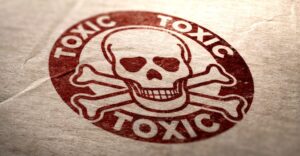 Georgia and Tennessee are first states to gain approval to diffuse a chemical known to trigger asthma and other serious respiratory illnesses throughout government buildings, healthcare and food processing facilities and intrastate transportation. By Children’s Health Defense Team
Georgia and Tennessee are first states to gain approval to diffuse a chemical known to trigger asthma and other serious respiratory illnesses throughout government buildings, healthcare and food processing facilities and intrastate transportation. By Children’s Health Defense Team
In mid-January, the U.S. Environmental Protection Agency (EPA) approved requests from two southern states (Georgia and Tennessee) asking for an emergency exemption that would allow them to aerosolize selected indoor spaces with an antiviral “air treatment” called Grignard Pure.
Grignard Pure is a nanoparticle-based product. Its active ingredient is a substance called triethylene glycol (TEG).
The EPA’s approval slid in under Section 18 of the Federal Insecticide, Fungicide and Rodenticide Act (FIFRA), which allows the agency to green-light pesticides for unregistered uses in defined geographic areas for up to a year during public health emergencies deemed “urgent” and “non-routine.”
Grignard Pure contains TEG as a standalone chemical compound, but TEG is also a component of some polyethylene glycol (PEG) compounds (those of low molecular weight).



